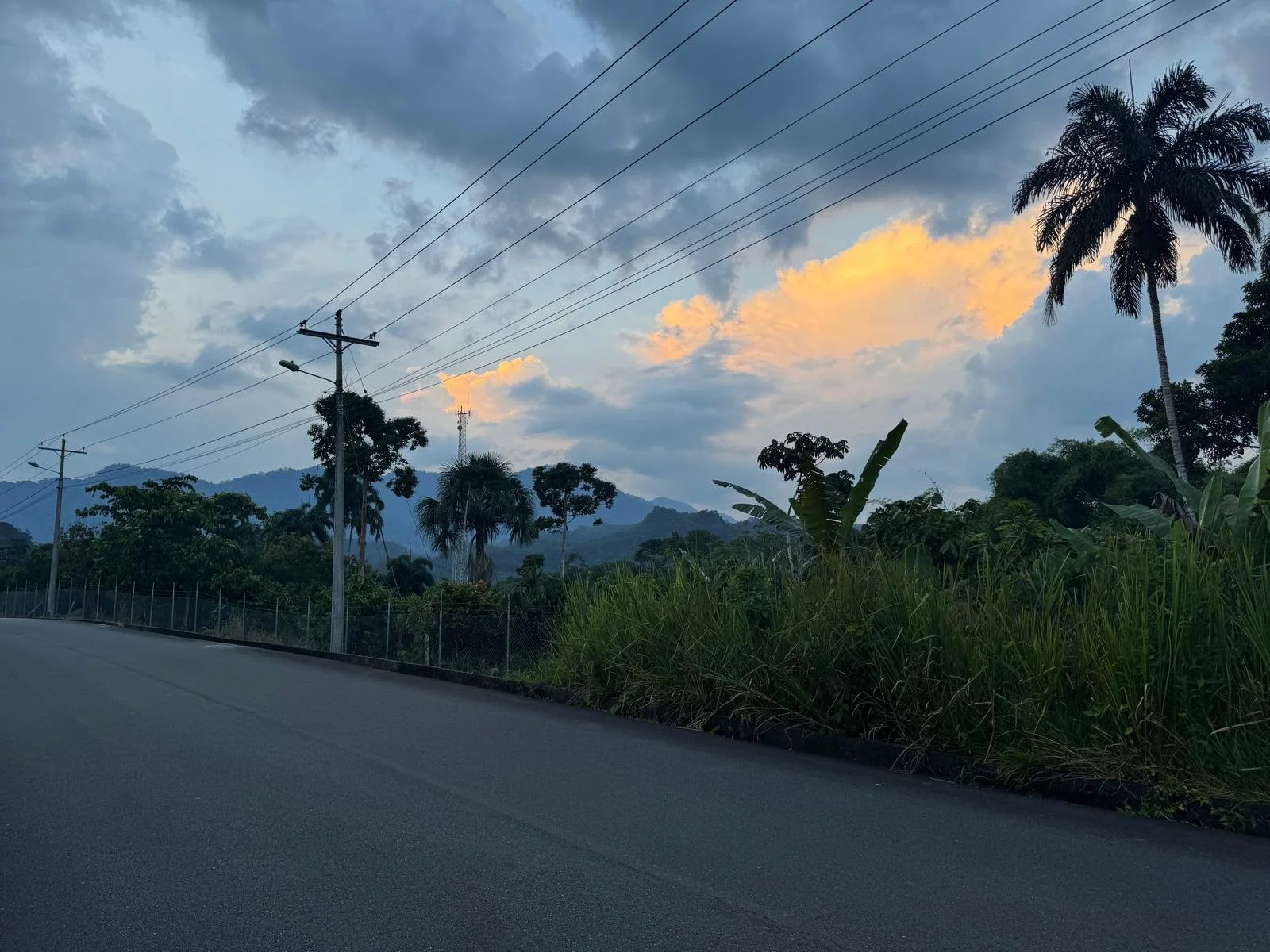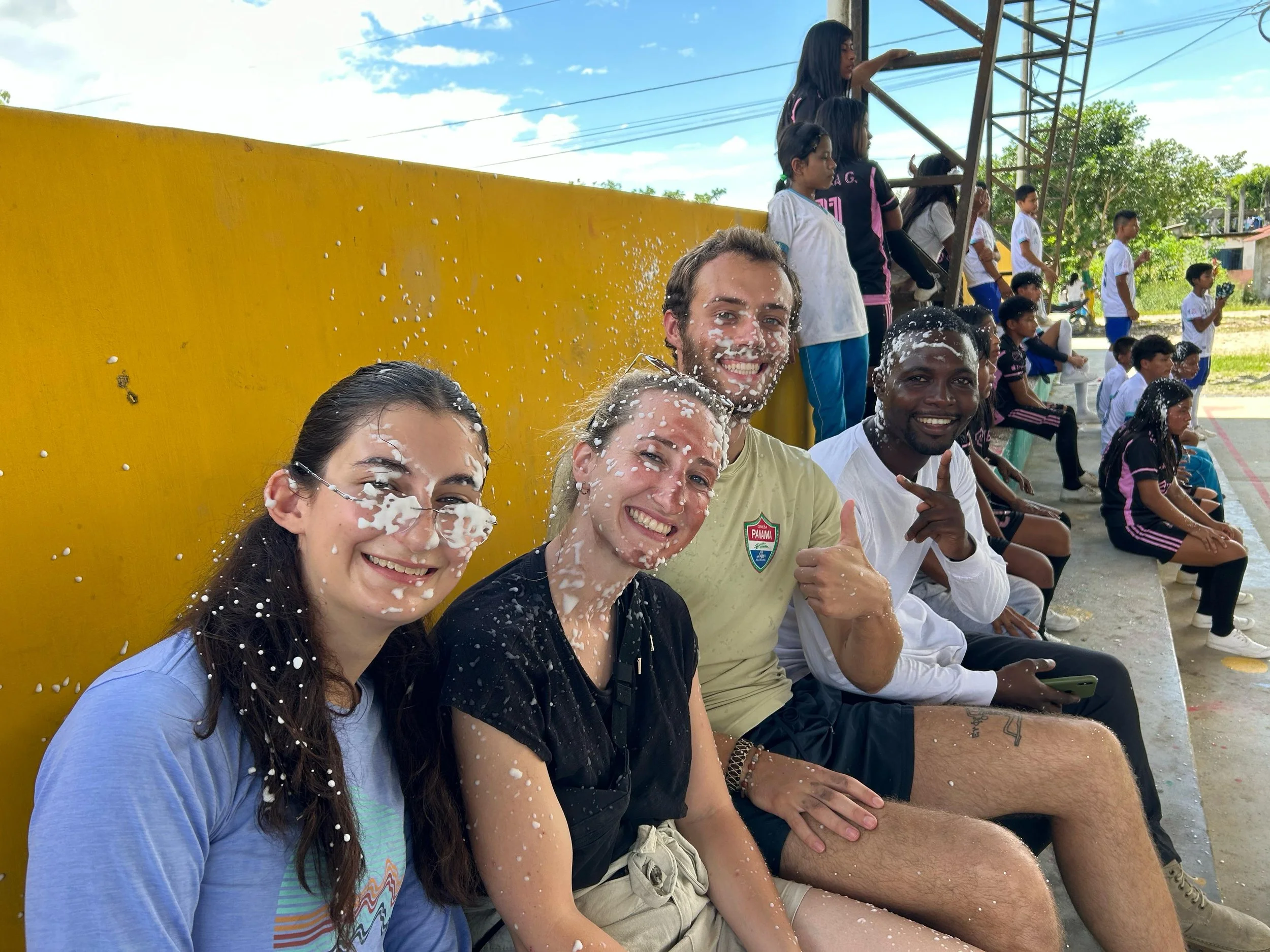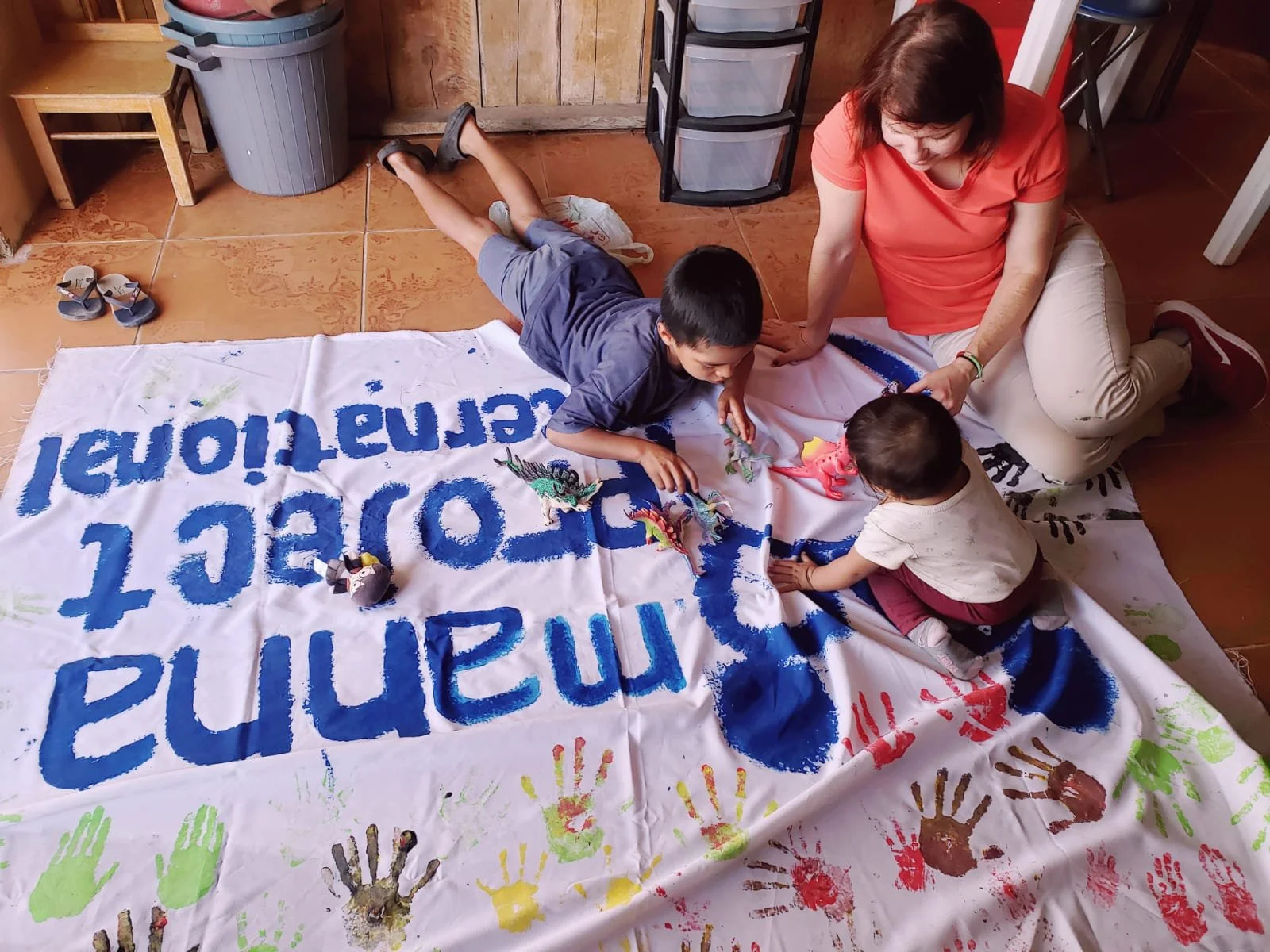As my time wraps up here in Ecuador, I figured it would only be fitting to go out with a final blog post to sum up my unforgettable 5 months. I’m incredibly grateful for the opportunity to have lived and served in this beautiful country for the time that I did, and I plan to take my friendships and memories with me throughout my life. Unfortunately, there are some parts that I won’t be able to take with me throughout my journeys. For your reading pleasure, I’ve compiled a list of the things I’ll miss most about Ecuador as I move forward.
1.Getting called “Nenita”
In Spanish, nena is both the word for little girl and for a term of affection equatable to “baby.” I usually introduce myself as Nena instead of Nayna because it’s much easier for all parties involved, and I love the look of surprise I always get when I do this. What follows is typically a conversation involving the other person saying, “okay, but what is your real name??” When I tell them that that is, in fact, my real name they laugh and tell me that it will be very easy to remember. Most of the time this is excellent because everyone knows my name, (and I mean everyone): families in the centro, my taxi drivers, the guy who owns the gym I go to, the students at ESPE university, the lady who threads my eyebrows, you name it! I also feel somewhat famous because my name is in almost every song (think about how many songs in English have the word “baby”). Because everything in Spanish is a diminutive (see number 12), my name often gets converted to Nenita, which is just too cute to be true. I’m not necessarily looking forward to returning back to the states and getting called plain ol’ Nayna.
2. Measuring the passage of time by growing crops
Rumiloma is a predominantly farming-based community, and our walks to the centro from the bus stop typically involve passing a few different fields with corn stalks. Every month, we are able to gauge just how long we’ve been here by how tall the stalks grow. The most recent time we walked together, the stalks were taller than Ayzsa!
3. Making the world your bus stop
This is an extremely convenient and courteous service that all bus drivers humor for their passengers. Gone are the days of running for buses. For more clarification on this topic, see my previous blog post about riding the buses of Ecuador.
4. Having the taxi company know exactly where you live
A few years ago, there was a PD named Emily, who must have been the first person to call the particular taxi company we use. Since that fateful day years ago, our home in Sangolqui has been known as “La Casa de Emily.” Now whenever we call for a taxi from our house, we only have to say “Buenos dias” and the operator immediately asks us the Spanish equivalent of “would you like a taxi to the House of Emily?” What’s even better, is that some of the taxi drivers tell us that they remember driving Emily around and ask how she’s doing now. This might be the most fun part for me. Based on the day and how I’m feeling, Emily has completely different lives: sometimes she is married and lives in Ecuador with her children, sometimes she’s a high school teacher in the United States, sometimes she’s a famous actress in Hollywood, California,
5. Seeing cute sleeping dogs everywhere
This is enough to make you smile no matter how bad your day is. On that note, it’s also incredible that the dogs here are aware of traffic rules and know how and when to cross the street. We almost never have to worry about dogs getting hit by cars because they follow jay-walking laws better than we do!
6. Knowing everyone when you walk down the street
It seems that at times here, everyone is related. Everyone is someone’s cousin or brother-in-law. Nothing makes me happier than walking to and from the centro or around Sangolqui and being able to wave to and talk to so many families along the way.
7. Always being greeted in a room
The culture of Ecuador is such that when you walk into a room, it’s polite to say hello to every single person in the room. Whether it’s a nod, a kiss, a handshake or a “buenos dias”, and whether or not you know everyone in the room, this is what you’re supposed to do (and it’s rude if you don’t!). Large meetings are often interrupted by latecomers who have to greet everyone in attendance, but no one seems to mind. I’ll have to remind myself upon returning to the US to 1) not say hello to everyone in every room that I enter and to 2) not get offended when strangers enter a room and don’t greet me.
8. The ability to book a Mariachi Band for any and all social gatherings
This needs almost no explanation. For me, it’s not really a party unless you have Mariachis. I’ve been to at least 6 events with Mariachis in my time here (and have passed by dozens more) and have attended events where people are disappointed if there is no band. There’s something about trumpets, guitars, matching uniforms, dancing and giant sombreros that now makes parties with just DJs seem super boring!
9. The availability of Manicho
If you didn’t know, Manicho is a usually $0.50 chocolate and peanut bar and is available on practically every street corner. Ecuador has never failed to satisfy my chocolate cravings, and for that, I am forever grateful. If you need more explanation about the magic of Manicho, refer to my previous blog post about the junk food of Ecuador.
10. Nicknames
The five of us have gotten accustomed to the nicknames that the community uses to refer to us (either to our faces or when talking about us). Instead of Nayna, Hunter, Ayzsa, Jimmy and Vincent, we are La Morenita (the brown one), La Blanquita (the white one), La Negrita (the black one), El Flaquito (the skinny one) and El Serio (the serious one), respectively. After a few months, we found ourselves referring to each other by those names when talking to community members as well:
“Jimmy is teaching class today.”
“Jimmy? Who’s Jimmy?”
“El flaquito.”
“Ahhh, right, right.”
11. The unimaginable variety of students’ track suit combinations
Almost all students from grade school to high school wear school uniforms. These students also have mandatory gym days in their schedules and on those days, they all wear matching track pants and jackets with their school colors. On these exercise days, the streets and buses look like giant adds for Sports Authority.
12. Exaggerations when speaking Spanish
Everything in Spanish is a diminutive. Sopa (soup) is sopita, casa (house) is casita, dollar is dollarito, centavos (cents) are centavitos, agua (water) is aguita, hija (daughter) is hijita…the list is endless. Everything is cute and little, even if logically it makes no sense (for example, ahora, the word for “now” is hardly ever spoken. Ahorita is said instead). Conversely, when exaggerations in the opposite direction are desired, “issimo” can be added to basically any word: lindissimo, grandissimo, bastantissimo (really beautiful, really big, way more than enough, respectively).
13. Everything about juice
It’s almost a crime to not take advantage of all the fruits/fruit juice of Ecuador, because they’re fresh, affordable and nonexistent in the states! I almost always order fruit juice when I’m out to eat, because fresh fruit juices in the US are so expensive. Perhaps my favorite part about ordering a fruit juice is getting it para llevar (to go) because most of the time you are given your juice in a plastic bag tied at the top with a straw stuck inside. I always feel super cool struttin’ down the street with my plastic bag of pineapple juice.
14. Food glorious food
Depending on the way you see it, $0.15 bread, $2.50 lunch plates and 5 for $1 apples can be a gift or a curse. I, of course, see it as the former. It’s certainly going to be a rude awakening when I return to the states and eat out for the first time. On the wave of affordability, the most beautiful bouquets of flowers can also be bought here for just $1! This could be why all the couples here seem so happy… it’s so affordable for guys to apologize when they mess up!
15. Beautiful views, beautiful relationships
I’ve said this repeatedly, but as the nature fanatic that I am, Ecaudor never once disappointed me in providing magnificent sunsets, sunrises, night skies, rainbows, mountains, volcanoes, lakes and forests for me to see and climb and hike and swim. There is something so special and unbeatable about this natural beauty that no pictures can do it justice.
Undoubtedly the most difficult part of leaving a place you’ve called home for half a year is saying good-bye to the family and friends you’ve made. I never imagined I’d be so warmly welcomed into our community and would form such strong bonds while here. If nothing else, it’s all the more reason to come back and visit in the future. I will never forget my time here and look forward to making new memories when I return. Until next time, Ecuador!
See yourself living in Ecuador? Apply now to be a Program Director!

































